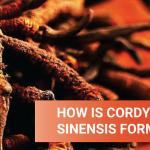
Legend has it that the mountain god Tang Gula, in order to help the good prince to avoid the murder, casts magic into a worm and hides it in the grass, and also let him grow a grass tail. Later, the prince escaped the catastrophe, but he had already seen the red dust, and he did not want to return to the world. He would rather use his own body to benefit mankind. In order to help the prince realize this desire, the mountain god injects a miraculous power of immortality into the body of the prince who has become a worm.
Cordyceps Sinensis is a valuable nourishing medicinal material. Even if it has not been eaten, it must have been heard. So, is Cordyceps Sinensis a worm or a grass? How is Cordyceps Sinensis formed?
Is Cordyceps Sinensis a Worm or Grass?
Cordyceps Sinensis Morphology
Cordyceps Sinensis is composed of worms and colonies. The worms that breed Cordyceps Sinensis are called bat moths. They mainly absorb nutrients from the roots of the plants. They belong to a species of the bat moth family. They are small in shape and have a tan on the back of the chest. Long hair. The color of Cordyceps Sinensis is dark yellow, the shape is slender, and there are many horizontal stripes on the back of the silkworm. The belly has 16 feet, the inside is solid, the color is white and slightly yellow; the color of the fungus is brown, bar-shaped upper end is swollen, the inside is empty, the color is pink and white, and the smell is slightly odorous.
Growing environment
The formation of Cordyceps Sinensis is amazing, nature is really mysterious, and there are things in the world who can be both animal and plants. In fact, Cordyceps Sinensis is a combination of fungi and insects. When the Cordyceps Sinensis fungus meets the larvae of the bat moth, it will be infected and die until the Cordyceps Sinensis fungus erodes the entire worm, which is Cordyceps Sinensis. Cordyceps Sinensis grows on high-altitude forest meadows or grasslands, and the color of Cordyceps Sinensis varies slightly depending on the environment. The production of Cordyceps Sinensis in Tibet is the largest, followed by Qinghai Province, Yunnan Province and Sichuan Province.
Medicinal Properties of Cordyceps Sinensis
Cordyceps Sinensis need to be collected when the snow has not melted, otherwise the insects in the soil will wither and cannot be used. With the development of science and technology, people gradually become familiar with the medicinal active ingredients of Cordyceps Sinensis. Cordyceps Sinensis mainly contains cordycepic acid, cordyceps, crude protein, crude fiber, vitamin B12, etc., which can improve myocardial ischemia and inhibit thrombosis. It has a strong killing effect on pneumonia pathogens and also improve the body’s immunity.
What is the formation process of Cordyceps Sinensis?
Cordyceps Sinensis is not a grass but a fungus (ascomycete), a pseudobacterial sclerotium formed by Cordyceps Sinensis in the larvae of bat moth, which is a mixture of hyphae and worms, and the shape of the larva is unchanged. This is a unique group above the alpine snow line of the Qinghai-Tibet Plateau. Cordyceps Sinensis grows in the mountainous area of 3,500 meters above the Qinghai-Tibet Plateau and its marginal zone. Its larvae have a strong vitality to feed on the rhizome of the highland plants such as the genus Amaranthus, Astragalus and Ophiopogon, during the two-year underground development. It can tolerate long-term hunger, cold and anoxic environment, and it is rich in nutrients and unique high-altitude biological components. The plateau has a unique climate, strong ultraviolet light, and abundant alfalfa in alpine meadows, providing enough insect food sources, which is the basic guarantee for completing the life history of Cordyceps Sinensis.
The bat moth is a cold-tolerant insect living on the plateau at an altitude of 3,500 to 5,000 meters. Its adult period is only 4 to 12 days, but its larval stage is 680 to 900 days. At almost the same elevation, there is also a fungus called Cordyceps, whose spores leave the mother and can only survive for about 40 days if they do not find a suitable host. Most of the Cordyceps spores leave the mother’s body and then float in the wind, which naturally ends its life. Only a small part of the larvae of the bat moth, the host of Cordyceps, is found in the soil with rainwater.
The bat moth larvae are usually infected in the late autumn and early winter, and after about one month, the fungus invades the worm to develop into a sclerotium. At the same time, the larvae of the bat moth stopped its life and became a nutrient donor of Cordyceps Sinensis. After the winter, the weather is extremely cold, and the Cordyceps Sinensis enters the dormant period. In the spring of the next year, Cordyceps Sinensis continued to extract nutrients, when its hyphae filled the entire body. At the end of April, the first batch of Cordyceps Sinensis may come out from the head of the worm body, but the period from May to July is the most vigorous season for the growth of Cordyceps Sinensis, and it is also the best time for harvesting.
After July, most of the Cordyceps Sinensis spores have already dispersed, and the stroma has withered. Cordyceps Sinensis at this time has not much medicinal value. The scattered spores began their next round of life, and the maternal body Cordyceps Sinensis buried in the soil only waited to be dug or rot.

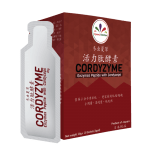
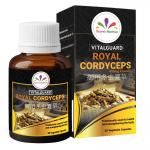




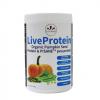


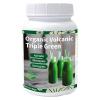
Facebook Comments